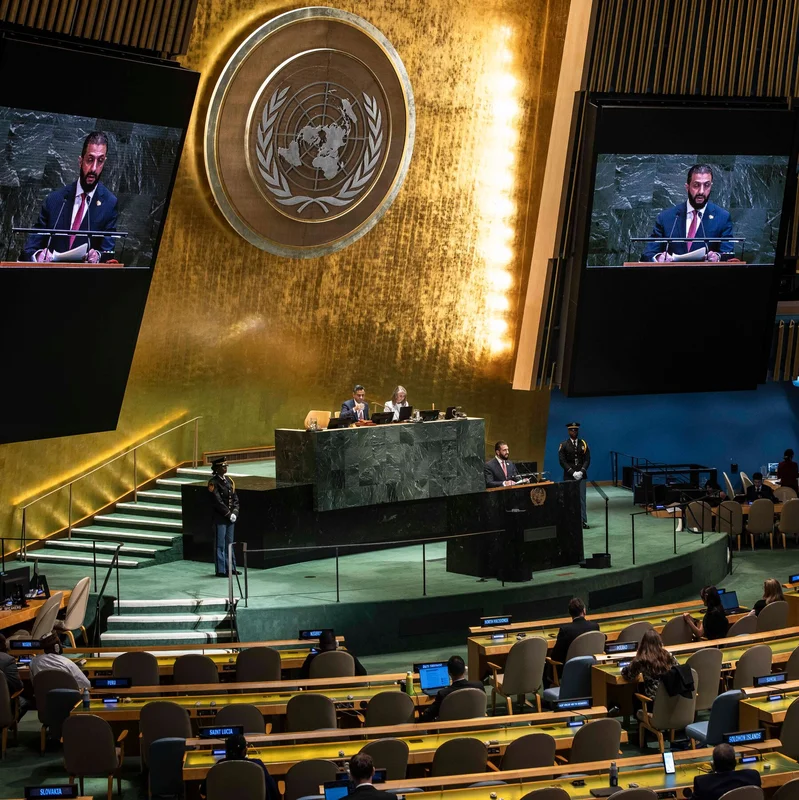In a momentous shift on the global stage, Syrian President Ahmed al-Shara addressed the United Nations General Assembly on September 25, 2025—becoming the first Syrian leader to do so since 1967. His speech marked a dramatic transformation for a man once linked to jihadist factions and now positioning himself as a statesman committed to rebuilding a war-torn nation.
From Rebel Leader to Head of State
Ahmed al-Shara, who led opposition forces that toppled Bashar al-Assad’s decades-long regime in December 2024, used his U.N. platform to reframe Syria’s global identity. “Syria has transformed from an exporter of crisis to an opportunity for peace for Syria and the region,” he declared .
Key Themes from al-Shara’s U.N. Address
Al-Shara’s speech centered on three core messages:
- Rejection of Assad’s Legacy: He condemned decades of “oppression” under the former regime.
- National Reconstruction: Highlighted efforts to rebuild state institutions and restore public services.
- Call for Regional Peace: Urged dialogue with Israel despite ongoing airstrikes.
Israel Tensions Persist
Al-Shara directly criticized Israel, noting that “hundreds of airstrikes” have targeted Syria since he assumed power. “Israeli policies contradict the international supporting position for Syria,” he warned, signaling potential friction with Western allies backing his transitional government .
Historical Context: Syria at the U.N.
The last time a Syrian president spoke at the U.N. General Assembly was in 1967—during the Cold War, under President Nureddin al-Atassi. That year also saw the Six-Day War between Israel and its Arab neighbors.
| Year | Syrian Leader | Global Context |
|---|---|---|
| 1967 | Nureddin al-Atassi | Six-Day War; Cold War tensions |
| 2025 | Ahmed al-Shara | Post-Assad transition; regional instability |
International Reactions
While al-Shara’s appearance was historic, diplomatic responses remain cautious:
- United States: Maintains terrorist designation; no official comment on speech.
- European Union: Acknowledged “positive rhetoric” but emphasized need for verifiable reforms.
- Arab League: Reportedly considering Syria’s full reinstatement after years of suspension.
What Comes Next for Syria?
Al-Shara’s government faces immense challenges:
- Humanitarian Recovery: Over 12 million Syrians remain displaced or in need of aid (UNOCHA, 2025).
- Security Fragmentation: Multiple militias still operate outside state control.
- Economic Collapse: The Syrian pound has lost 98% of its pre-war value.
From insurgency to institution-building: Can al-Shara deliver?
For more on Syria’s political evolution, see our in-depth analysis on [INTERNAL_LINK:syria-post-assad-transition].
For verified updates on global diplomacy, refer to the United Nations official website.
Sources
- https://www.nytimes.com/2025/09/25/briefing/syria-president-un.html
- https://www.un.org/en/
- https://www.state.gov/foreign-terrorist-organizations/
- https://www.unocha.org/syrian-arab-republic
- https://www.brookings.edu/topics/syria/




